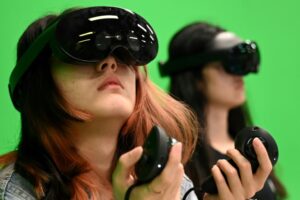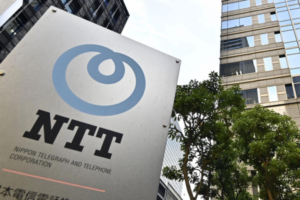Tokyo, 31 August, /AJMEDIA/
Fujitsu Limited and Tsuda University have announced the launch of a social design joint research project to realize sustainable and flexible community health care services in Japan. The project aims to realize a framework to provide patients with high-quality medical and health services even with limited social resources by leveraging converging technologies: advanced technologies that combine computer sciences including AI with the humanities and social sciences such as empirical economics.
Within this project, Fujitsu and Tsuda University will digitize so-called “care pathways,” the flow of medical and health services that patients receive, including disease prevention, treatment, and prognosis. Leveraging Fujitsu’s AI technology to predict patients’ conditions on the care pathway from medical and health data and Tsuda University’s findings from empirical economics, the two parties will analyze patients’ care pathways and identify bottlenecks in existing regional healthcare systems to ultimately offer patients more efficient and high-quality health services.
With the cooperation of medical institutions and local governments in Japan, the two parties aim to establish a methodology to propose improvements to patients, local governments and service providers, and to build consensus for the practical implementation of these proposals in society.
By the end of FY 2024, Fujitsu aims to connect people with medical institutions, companies, and governments, and apply the sustainable and highly flexible care pathway design technology developed in this joint research to help realize a more consumer-centric industry and society. Fujitsu will further conduct field trials with the goal of applying the newly developed service to a wide range of global medical and health service providers in Japan and beyond. Fujitsu will continue to promote “Healthy Living,” one of its key focus areas under its global business brand Fujitsu Uvance, to create a world that enriches the life experience of everyone.
The rapid aging of society represents an ongoing, urgent social issue in many parts of the industrialized world. In Japan, the ratio of the population aged 65 and over has reached 28.6% in recent years. As the aging of society continues to increase in many countries, building a sustainable service provision system that can maintain the quality of medical care and nursing care by efficiently using limited resources is developing into a major societal issue confronting the world.
However, medical and health services, including those relating to disease prevention, treatment, and prognosis, are currently provided as separate services, and comprehensive coordination of these services based on a patient’s condition and situation is not yet possible. Due to this lack of coordination, patients, for example, that are transferred between different hospitals, tend to feel insecure as they cannot overview their further treatment. Yet, attempts to improve the quality of medical and health services prove to be problematic, as they require a large amount of social resources and improvements often even lead to a lower efficiency in the provision of services.
Within this project, the two parties will combine Fujitsu’s digital technologies including an AI-based technology to predict patient conditions and a matching technology to derive fair assignments with Tsuda University’s research findings from empirical economics perspectives, such as health innovation through hospital downsizing (reduction of hospital beds) and urban space realignment.









































